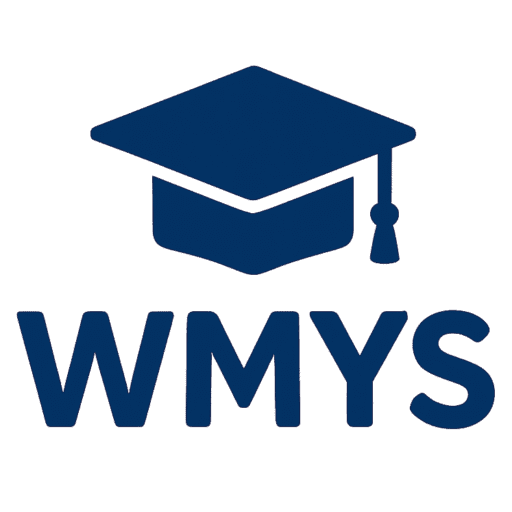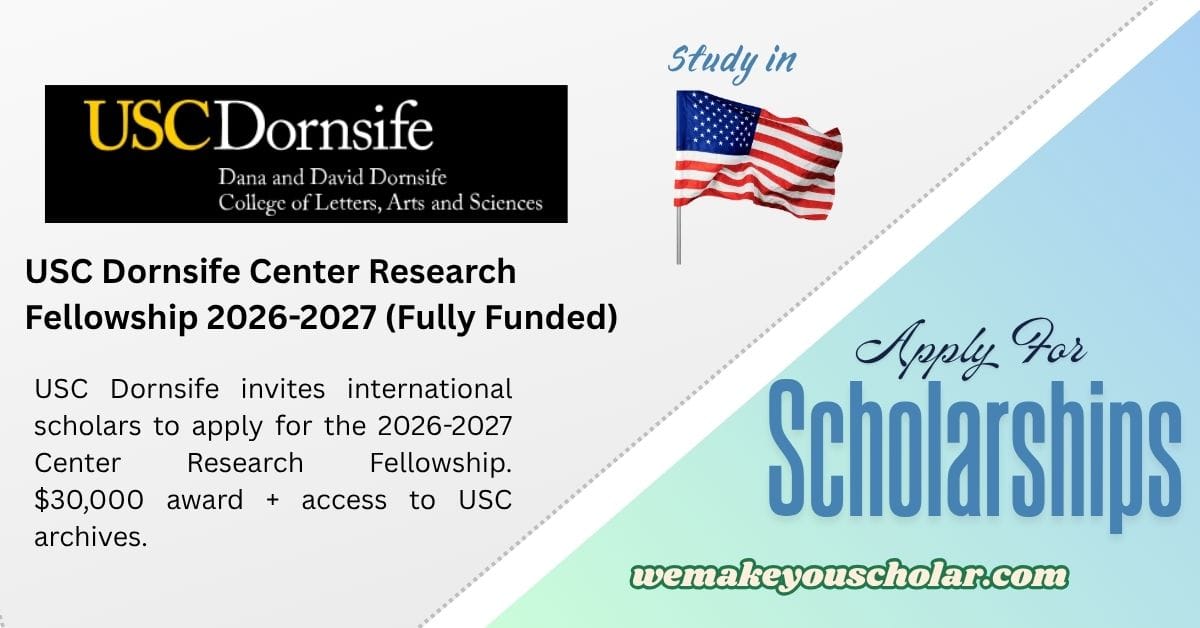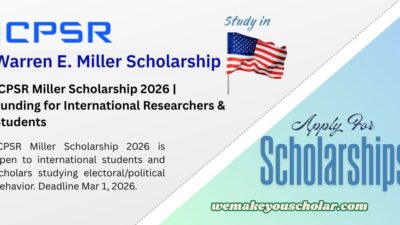USC Dornsife Center Research Fellowship 2026-2027 for International Scholars (Fully Funded)
Are you a senior scholar eager to deepen your research and gain access to unique archival resources? The USC Dornsife Center for Advanced Genocide Research Fellowship 2026–2027 offers an exceptional opportunity to conduct world-class research in Los Angeles with $30,000 in funding. Designed for scholars working on genocide and mass violence, this fellowship provides exclusive access to the Visual History Archive and other USC collections, making it one of the most prestigious research fellowships of its kind. International scholars are strongly encouraged to apply.
About the USC Dornsife Center for Advanced Genocide Research
The USC Dornsife Center, established in 2014, is globally recognized for its interdisciplinary focus on genocide studies. Unlike many institutes, it gives fellows direct access to extensive testimonies and archival collections. The Visual History Archive alone contains more than 59,000 audiovisual interviews conducted in 70 countries and in 44 languages. These testimonies document not only the Holocaust but also the Rwandan genocide, Armenian genocide, Cambodian genocide, Guatemalan conflict, the Nanjing Massacre, Bosnian war crimes, and ongoing crises such as anti-Rohingya violence.
In addition, USC houses rare transcripts of the Nuremberg Trials, private papers of Third Reich emigrants, and collections of Holocaust survivors and liberators. Fellows benefit from both the academic rigor and the supportive scholarly environment USC fosters.
What Makes This Fellowship Unique?
Many research opportunities provide funding, but few combine financial support, academic prestige, and unrivaled resources. The USC Dornsife Fellowship is unique because it requires fellows to reside in Los Angeles for one semester, fully immersing them in USC’s academic environment. Fellows also engage in Center events, research discussions, and a public lecture, making them part of a vibrant international scholarly community.
Fellowship Benefits
- $30,000 funding for one semester (Fall or Spring of the 2026–2027 academic year)
- Access to the Visual History Archive with over 59,000 testimonies
- Use of USC Libraries’ Holocaust and Genocide Studies collection (30,000+ sources)
- Special Collections access, including Feuchtwanger Memorial Library and private papers
- Participation in academic seminars, workshops, and conferences
- Opportunity to deliver a public research lecture at USC
- Networking with scholars, students, and genocide researchers worldwide
Who Can Apply?
The fellowship is open to senior scholars from any discipline. Applicants must demonstrate outstanding research achievements and propose an original project that benefits from USC’s collections. While there are no restrictions on nationality, international scholars are especially welcome. The fellowship seeks researchers who bring fresh perspectives to genocide studies and who can connect their work with USC’s unique archives.
Eligibility Criteria
- Applicants must be senior scholars with a proven academic record.
- The proposed research must integrate USC archives, especially the Visual History Archive.
- Candidates should demonstrate how their project advances Holocaust and genocide studies.
- Residency in Los Angeles during Fall or Spring semester 2026–2027 is required.
- Strong academic writing and ability to present findings publicly are expected.
Research Resources Available at USC
International researchers often face the challenge of limited access to primary sources. At USC, fellows can use:
- Visual History Archive: Survivor and witness testimonies from multiple genocides.
- USC Libraries: 30,000+ genocide-related documents, including Nuremberg Trials transcripts.
- Feuchtwanger Memorial Library: Papers of exiled German authors and thinkers.
- Special Collections: Unique private collections from survivors, liberators, and emigrants.
These resources make USC one of the most comprehensive genocide research centers worldwide, giving international scholars access to material often unavailable elsewhere.
Application Process: Step by Step
- Prepare Your Cover Letter: Clearly state your research focus, why USC is essential, and proposed residency dates.
- Update Your CV: Highlight academic achievements, publications, and relevant research experience.
- Write a Research Proposal (max 3 pages): Include methodology, significance, and integration of USC resources.
- Submit Application: Send materials to ca**@*sc.edu or upload via the official fellowship page.
Selection Criteria
Applications are evaluated based on:
- Originality and impact of the research proposal
- Candidate’s academic achievements and contributions to the field
- Relevance of USC resources to the project
- Potential for advancing genocide research globally
Application Deadline
The deadline to apply is January 15, 2026. Early preparation is strongly advised, especially for international applicants who may require visas or travel arrangements.
Living in Los Angeles as a Fellow
International fellows will be based in Los Angeles, California, home to USC’s main campus. Beyond research, scholars enjoy access to one of the world’s most diverse cities, with academic collaborations, cultural institutions, and a vibrant community. Los Angeles offers extensive housing, transportation, and cultural experiences that enrich the fellowship experience.
How This Fellowship Advances Your Career
Winning the USC Dornsife Fellowship not only provides financial support but also enhances your academic profile. Many fellows go on to publish groundbreaking work, secure tenure-track positions, or lead international research collaborations. The public lecture required during residency also gives fellows visibility within USC and the broader academic community.
Tips for a Strong Application
- Demonstrate direct use of USC archives in your proposal.
- Show how your project makes a unique contribution to genocide studies.
- Provide a clear, structured, and feasible research timeline.
- Highlight your past research achievements and publications.
- Address how your work will benefit the wider academic and global community.
Frequently Asked Questions (FAQs)
Is this fellowship open to international scholars?
Yes. The fellowship welcomes applications from scholars worldwide. International applicants are strongly encouraged to apply.
Can I bring family members to Los Angeles?
Yes, many international fellows bring family members. USC offers guidance on housing, schools, and visas.
Do I need to speak English fluently?
Yes, strong English proficiency is required for research, participation in Center events, and the public lecture.
What costs does the fellowship cover?
The award provides $30,000 for living expenses and research costs. Fellows are responsible for managing housing, meals, and travel within this support.
When will I be notified of results?
Decisions are typically made after the application deadline, and recipients are notified in early spring 2026.
Official Fellowship Link
For full details and to apply, visit the official USC fellowship page here:
USC Dornsife Center Research Fellowship 2026–2027.




